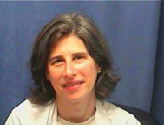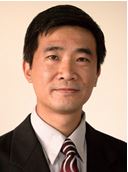Diabetes & Cancer: Novel Links and Treatments
Description
This conference has been purposely designed to update practicing Oncologists and Endocrinologists (both academic and those in private practice) as well as those in training. The focus will be on the effects of diabetes on cancer therapy, and the effects of cancer on diabetes and its therapy.
It is now well understood that diabetes and cancer are linked in three main ways, 1) Diabetes increases the risk of many cancers, 2) Cancers and cancer therapies increase the risk of diabetes and/or hyperglycemia and 3) Treatment of Diabetes impacts the outcome of several cancers. Clinicians who treat the two conditions are often challenged by the desire and need to work together to care for affected patients. Through a symposium-plus-workshop model employing expert faculty from both Oncology and in Endocrinology, this education program will explore and address these three key aspects of the diabetes-cancer association, addressing knowledge and practice gaps along the way
Target Audience
This activity is intended for Hematologists/Oncologists, Community Oncologists, Fellows, PharmDs, Nurses, other relevant Healthcare Professionals, Endocrinologists, academic and community endocrinologists and fellows in training.
Learning Objectives
At the conclusion of this activity, participants will be able to:
- Evaluate the recent epidemiological data supporting evidence for a role of obesity and diabetes on increased cancer risk and complications.
- Recognize the effect of uncontrolled diabetes on cancer and the effect of cancer on diabetes control.
- Identify the effects of anti-cancer therapies on diabetes control.
- Apply the most current diabetes management in the treatment of cancer patients.
Additional Information

Course Director:
Marie E. McDonnell, MD

Director, Diabetes Program, Brigham Health;
Chief, Diabetes Section,
Division of Endocrinology, Diabetes and Hypertension,
Brigham and Women’s Hospital & Harvard Medical School
A graduate of Boston University School of Medicine, the New York Presbyterian Hospital-Columbia residency program, and Endocrinology fellowship at Boston Medical Center, Dr. McDonnell’s clinical research focus is health outcomes of scalable specialty-level diabetes care delivery services in the acute and ambulatory settings. Dr. McDonnell teaches medical students at Harvard Medical School and is key faculty for both the Medicine and Endocrinology training programs at Brigham and Women’s Hospital. She has received recognition for her mentorship of junior faculty. She delivers multiple local, regional and international lectures and webinars per year in the field of Diabetes Care. She has served on several national committees, including the Endocrine Society Guidelines committee. She has co-authored the Society of Thoracic Surgeons practice guideline on blood glucose management during adult cardiac surgery, the Endocrine Society guideline on the Pharmacologic Management of Obesity, and Endocrine Society Guideline on the Management of Diabetes in Older Adults. She is currently on the writing committee on the Endocrine Society Guideline for Management of Hyperglycemia in the Hospital Setting.
Course Co-Directors:
Emily J. Gallagher, M.D., Ph.D.

Assistant Professor of Medicine, Endocrinology Diabetes and Bone Diseases,
Department of Medicine,
Icahn School of Medicine at Mount Sinai
Dr. Emily Gallagher is a physician-scientist in the Division of Endocrinology, Diabetes and Bone Diseases at the Icahn School of Medicine at Mount Sinai, where she also serves as the Associate Program Director for Research and Director of the Research Track for the Internal Medicine Residency Program. She received her medical degree at the University College Dublin, Ireland, and PhD in Physiology from the Royal College of Surgeons in Ireland. She has Membership of the Royal College of Physicians of Ireland, and is ABIM Board Certified in Internal Medicine and Endocrinology. Her scientific research focuses on the effects of systemic metabolic disease and cancer progression with specific interests in the roles of insulin and lipids. Clinically, she is an onco-endocrinologist, specializing in the treatment of metabolic and endocrine complications of cancer treatments.
Derek LeRoith, MD, PhD, FACP

Director of Research,
Division of Endocrinology, Diabetes and Bone Disease,
Icahn School of Medicine at Mount Sinai
Dr LeRoith received his medical and research training at the University of Cape Town, South Africa, and completed his postgraduate training in London, United Kingdom. Subsequently, he was a member of the medical faculty at Ben-Gurion University Medical School in Israel.
Dr LeRoith worked for the National Institutes of Health (NIH) from 1979 until 2005 in the field of endocrinology and diabetes, and he advanced to Diabetes Branch Chief at the NIH in Bethesda, Maryland. His research interests include the role of insulin and insulin-like growth factors in normal physiology and in disease states, including obesity, type 2 diabetes mellitus (T2DM), and cancer. His clinical interests primarily involve the pathophysiology and management of Obesity and T2DM. Dr LeRoith has published more than 600 research and review articles on these topics, as well editing numerous textbooks and is currently Editor in Chief of the AACE journal Endocrine Practice and Associate Editor of Diabetes Care.
Jeffrey A. Meyerhardt, MD, MPH

Professor of Medicine, Harvard School of Medicine;
Douglas Gray Woodruff Chair, Colorectal Cancer Research
Clinical Director, Gastrointestinal Cancer Center,
Deputy Clinical Research Officer,
Dana-Farber Cancer Institute
Jeffrey Meyerhardt earned his medical degree from Yale University School of Medicine, completed residency in medicine at Beth Israel Deaconess Medical Center in Boston, MA and fellowship at the joint Dana-Farber Cancer Institute, Massachusetts General Hospital, and Brigham and Women’s Hospital hematology/oncology program. Dr Meyerhardt also holds a Masters of Public Health from Harvard School of Public Health in Boston. Dr. Meyerhardt is a Senior Physician in the Gastrointestinal Cancer Center at the Dana-Farber Cancer Institute, serves as the Clinical Director for the Gastrointestinal Cancer Center, co-Director of the Colon and Rectal Cancer Center, and Deputy Clinical Research Officer at Dana-Farber. He is a Professor of Medicine at Harvard Medical School.
Dr. Meyerhardt’s research interests are focused on the influence of diet and lifestyle on outcomes among patients with cancer, particularly colorectal cancer. He served as a project leader on Dana-Farber/Harvard Cancer Center’s TREC and GI SPORE grants. He has led multiple phase II trials for gastrointestinal cancers and is the principal investigator for an ongoing NCI-sponsored phase III adjuvant therapy for stage III colon cancer. He has presented nationally and internationally and published extensively on related topics in peer-reviewed journals and book chapters. Dr. Meyerhardt is member of the Editorial Board for Journal of Clinical Oncology and served as a Guest Editor for 2 special series on Hosts Factors and Cancer Prognosis and on Gastrointestinal Cancer.
Dr. Meyerhardt is a member of the American Society of Clinical Oncology, serving on multiple committees including the Clinical Practice Guidelines Committee, Conquer Cancer Foundation Grants Selection Committee, Annual Meeting Scientific Program Committee, and Cancer Education Committee, and is an associate editor for Cancer.net. He co-chairs the Gastrointestinal Cancer committee for the Alliance for Clinical Trials in Oncology, a member of the NCI’s National Clinical Trials Network.
Speakers:
Lee-Shing Chang, MD

Instructor, Harvard Medical School;
Associate Physician, Division of Endocrinology, Diabetes, and Hypertension
Brigham and Women's Hospital
Dr. Chang is an Associate Physician in the Division of Endocrinology, Diabetes, and Hypertension at Brigham and Women's Hospital and an Instructor at Harvard Medical School.
A graduate of Northwestern University Feinberg School of Medicine and residency program. Dr. Chang's clinical and research interests include cardiovascular disease in diabetes and endocrine effects of immune checkpoint inhibitors. Dr. Chang teaches medical students at Harvard Medical School and residents in the Brigham and Women's Hospital internal medicine residency training program. He has an active diabetes and general endocrinology practice in the Boston area.
Florencia Halperin, MD, MMSc

Instructor in Medicine, Harvard Medical School;
Chief, Division of Endocrinology,
Co-Director, Center for Weight Management and Metabolic Surgery,
Division of Endocrinology,
Brigham and Women’s Hospital
Dr. Florencia Halperin is the co-founder and Co-Director of the Center for Weight Management and Metabolic Surgery at Brigham and Women’s Hospital, and Chief of Endocrinology at Brigham and Women’s Faulkner Hospital. Her clinical research is focused on the delivery of weight loss interventions, as well as on the metabolic effects of bariatric surgery. Her clinical research is complemented by her clinical practice focused on the management of obesity and diabetes.
Ole-Petter R. Hamnvik, MB BCh BAO, MMSc.

Assistant Professor of Medicine, Harvard Medical School;
Endocrinology Fellowship Program Director, Brigham and Women’s Hospital
Ole-Petter R. Hamnvik, MB BCh BAO, MMSc is an Assistant Professor of Medicine at Harvard Medical School and a practicing endocrinologist at Brigham and Women’s Hospital and at Dana-Farber Cancer Institute with a specific interest in endocrine disorders in cancer patients. He is also a clinician-educator, having completed the Rabkin Fellowship in Medical Education and the Harvard Macy Program for Educators in Health Professions. He now serves as the Fellowship Program Director for the training program in Endocrinology, Diabetes and Hypertension at BWH. He is the Education Editor for NEJM Group where he provides editorial oversight of their educational portfolio, including Resident360 and Knowledge+, and provides guidance on the development of new educational initiatives.
Margo Hudson, MD
Assistant Professor, Harvard Medical School;
Physician, Endocrinology, Diabetes and Hypertension,
Brigham and Women’s Hospital
Dr. Hudson is a clinician educator providing comprehensive care to people with diabetes for over 30 years. She completed her training at Tufts University Medical School, Boston University Hospital and Joslin Clinic. She started in practice in Waltham, Massachusetts at the Waltham Hospital caring for a wide-range of endocrine patients which allowed her to share her knowledge with medical students and residents.
In 2004 she joined the staff of Brigham and Women’s Hospital as a member of the inpatient Diabetes Management Team. She has been extensively involved in developing policies and protocols for inpatient management of glucose in medical and surgical patients. She has participated in clinical research trials, has authored several chapters in textbooks and co-edited a guide for inpatient glucose control.
She is also nationally and internationally recognized as a leader in advising hospitals, located in resource limited settings, on developing and improving their diabetes programs. She is an Assistant Professor of Medicine at Harvard Medical School and continues to educate students, residents and fellows.
Marcia Kalin, MD

Associate Professor of Clinical Medicine, Weill Cornell Medical College;
Associate Attending Physician, Memorial Hospital for Cancer and Allied Diseases;
Associate Clinical Member, Memorial Sloan Kettering Cancer Center
Dr. Kalin is an American Board of Internal Medicine certified endocrinologist with more than three decades of experience in the care of patients with diabetes. Since joining the medical staff at Memorial Sloan-Kettering Cancer Center (MSKCC) in 2003, she has brought this expertise to the treatment of patients with diabetes who concurrently are fighting cancer.
Dr. Kalin cares for patients in the hospital as well as those in the clinic, and she consults with nearly all of MSKCC’s disease management teams on patients with a diversity of cancers. She led a team that developed an algorithm for insulin use in hospitalized patients that is now a Memorial Hospital standard. As some experimental chemotherapeutic agents can cause or worsen diabetes, Dr. Kalin has been a co-investigator on several clinical trials of new cancer drugs.
Dr. Kalin also is involved in teaching and training medical students at Weill Cornell Medical College, medical interns in Memorial Sloan Kettering’s Transitional Year Residency Program, and endocrinology fellows in the joint program between Memorial Sloan Kettering and Weill Cornell Medical College.
Dr. Kalin is an active member of the American Diabetes Association and the American Association of Clinical Endocrinologists.
Ann S. LaCasce, MD, MMSc

Associate Professor of Medicine, Harvard Medical School;
Institute Physician, Dana-Farber Cancer Institute
Dr. Ann S. LaCasce graduated from Bowdoin College with a degree in Biochemistry and earned her medical degree from Tufts University School of Medicine. She completed training in internal medicine at Brigham and Women's Hospital in Boston, where she later served as a Chief Medical Resident. After her fellowship in medical oncology at Dana-Farber/Partners Cancer Care, she pursued formal training in clinical investigation, earning a Master in Medical Science from Harvard/MIT Division of Health Sciences and Technology. Since 2003, she has been a member of the Lymphoma Program at Dana-Farber where she performs clinical research. She has a longstanding interest in medical education, and in 2011, she assumed the role of Program Director of the Dana-Farber/Partners Cancer Care Fellowship which is the largest hematology/oncology training program in the country. In addition, she co-directs the Center for Adolescent and young Adult Oncology at Dana-Farber. She is an Associate Professor of Medicine at Harvard Medical School and is board certified in medical oncology. She serves as a member of the American Society of Hematology Committee on Training and is chair elect of the American Society of Clinical Oncology Profession Development Committee. She is a member of the National Comprehensive Cancer Network's Lymphoma Guideline Panel, the Alliance Lymphoma Committee and serves on the Lymphoma Research Foundation's Scientific Advisory Board.
Lydia Lynch, PhD

Instructor of Medicine, Harvard Medical School;
Brigham and Women's Hospital
Dr. Lydia Lynch received her B.Sc. degree in Cell Biology and Genetics from University College Dublin, Ireland and her PhD in Immunology in 2008 from University College Dublin. Lydia received a Newman Fellowship for her early post-doctoral studies with Prof. Donal O’Shea in St. Vincent’s University Hospital, Dublin. Here they established the Immunology and Obesity Lab, where she discovered adipose iNKT cells and demonstrated that therapies to activate these cells could help manage obesity, diabetes and metabolic disease. Lydia then received the prestigious UNESCO-L’Oreal International Women In Science Fellowship, and an International Marie Curie Fellowship where she moved to Harvard Medical School to study innate T cells in the labs of Prof. Michael Brenner and Prof. Ulrich von Andrian in Harvard. In 2013, she became a junior faculty member at Brigham and Women’s Hospital and Harvard Medical School. In 2014, Lydia started her independent lab at Brigham and Women’s Hospital and Harvard Medical School. She now leads an international team in immunometabolism, with a major focus on understanding the interdependence of the immune and metabolic systems, especially in the setting of obesity and cancer. Her lab has also discovered a critical role for IL-17 in the normal functions of fat, in particular in keeping us warm. She is the Director of the Metabolic Core and her lab uses state-of-the-art technology including live tissue imaging by 2-photon intra-vital microscopy and single cell sequencing. The major goals of the Lynch lab is to understand the effects of metabolic disruption such as in obesity on innate lymphocytes at the molecular level, so that we may develop methods to target immunometabolic pathways for protection against obesity-induced diseases including infection, cancer and metabolic disorder in the clinic. Her lab has recently published on this topic in Cell Metabolism (2017), Immunity (2014, 2017), Nature Neuroscience (2016), Nature (2018) and Nature Immunology (2015, 2018 & 2019). Lydia was a recipient of 2015 of inaugural Innovation Evergreen Fund award and an American Diabetes Association Award for projects aiming to study the role of immune system dysfunction in obesity and cardiovascular disease, and a Cancer Research Institute Award to study the effects of obesity on immunoptherapy. Lydia was selected as one of the 'Women on Walls' of the Royal Irish Academy, where her portrait hangs on the wall, the first female portrait in the 230 year history of the RIA. Lydia is an associate editor of Science Advances, and was named Tatler Woman of the Year for her contribution to STEM.
Le Min, MD, PhD

Associate Clinical Director, Neuroendocrine Program,
Assistant Professor of Medicine, Harvard Medical School;
Endocrinologist,
Division of Endocrinology, Diabetes, and Hypertension,
Brigham and Women’s Hospital
Dr. Le Min is an endocrinologist at Division of Endocrinology, Diabetes, and Hypertension, Brigham and Women’s Hospital, Associate clinical director of neuroendocrine program, and an assistant professor of Medicine at Harvard Medical School, Boston. He received his MD degree from Chongqing Medical University, China and a Ph.D. degree from National University of Singapore, Singapore. He had postdoctoral training at University of Iowa and Stony Brook University. He had his medical residency training at Mount Sinai School of Medicine (North General) Program and a fellowship training at Brigham and Women’s Hospital, Harvard medical School. Dr. Min is a physician scientist. He has been doing patientcare as well as medical translational research. His research interests focus on immune checkpoint inhibition-related endocrinopathies, neuroendocrine disorders, and neuroendocrine regulation of reproduction. He has numerous publications in high rank peer-review journals including The Lancet Diabetes and Endocrine Review, Endocrinology, JAMA oncology, Cancer Immunology Research, Cancer Clinical Research, Cancer, molecular endocrinology, and Endocrinology. He is Ad hoc Reviewer for many journals. He is awarded K08 funding from NIH. He serves as an NCI Investigational Drug Steering Committee -Immunotherapy Working Group.
Accreditation
Partners HealthCare System is accredited by the Accreditation Council for Continuing Medical Education to provide continuing medical education for Physicians.
Partners HealthCare System designates this live activity for a maximum of 7 AMA PRA Category 1 CreditsTM. Physicians should claim only the credit commensurate with the extent of their participation in the activity.
Nursing CEUs:
This Nursing education activity/program #1281 carries 6.5 Contact Hours.
The Brigham and Women’s Hospital is an approved provider of continuing nursing education by the Northeast Multistate Division, an accredited approver by the American Nurses Credentialing Center Commission on Accreditation (ANCC/COA). Approval valid though 12/15/19
Available Credit
- 7.00 AMA PRA Category 1 Credit™
- 7.00 Participation
Price
| Registration Type | Tuition Fee |
|---|---|
| Physician | $50 |
| Non-Physician Clinician | $25 |
| Students/Trainees/Fellows | $15 |
Cancellation Policy:
Registrations cancelled on or before November 8, 2019 will be refunded, less a $15 administrative fee. Registrations cancelled after November 8, 2019 will not be refunded.
Contact [email protected] if you require assistance in cancelling your online registration.

 Facebook
Facebook X
X LinkedIn
LinkedIn Forward
Forward